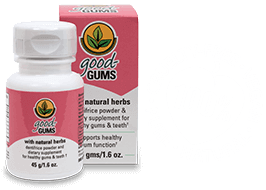Are You Getting Enough Vitamin D?

Vitamin D has long been hailed a super nutrient that promises a variety of great health benefits, but if you suffer from dairy allergies, shun the sun, or consider yourself a strict vegan, you are more than likely at risk of a vitamin D deficiency.
A whopping 50% of people are vitamin D deficient worldwide, including all different kinds of ethnicities and age groups.
There is growing research to suggest that vitamin D may go beyond its well-known role in bone health and help reduce the risk of heart disease, stroke, diabetes, autoimmune diseases, and even cancer.
What’s so unique about vitamin D is that it’s actually more of a hormone than a vitamin and that your kidneys produce it when your skin gets exposed to sunlight.
During the winter months, vitamin D levels in your body are naturally decreased, so it’s important to find other sources where possible. The main sources of vitamin D include organ meats, fish, eggs, and dairy. It is strongly recommended that vegetarians and vegans take a supplement during the winter months.
What does vitamin D actually do?
Vitamin D is absolutely vital for maintaining mineral balance in the body, as well as a strong skeletal structure. Vitamin D was actually first discovered because deficiency caused structural deformities. The role of vitamin D is to regulate the amount of calcium and phosphate in the body, which are nutrients needed to help keep our bones, teeth, and muscles healthy.
Other great vitamin D benefits:
- Enhances your mood
- Balances hormones
- Maintains a healthy immune system
- Manages diabetes by regulating insulin levels
- Regulates cell growth
- Reduces cancer progression by slowing down the growth of cancerous cells

Signs of vitamin D deficiency
Many factors affect the body’s ability to produce vitamin D, including a lack of natural sunlight, air pollution, sunscreen, skin color, age, and not enough vitamin D in your diet.
Signs that you may be vitamin D deficient:
- Frequent illness
- Back pain
- Depression or low mood
- Impaired wound healing
- Bone loss
- Hair loss
- Frequent fatigue
- Gum disease!
Recommended vitamin D intake
The amount of vitamin D you need depends on many factors – age, race, latitude, season, sun exposure and more.
Measurements for vitamin D are listed in two ways: micrograms (mcg) and International Units (IU).
One microgram of vitamin D is equal to 40 IU of vitamin D.
The recommended daily intakes of vitamin D were updated by the U.S. Institutes of Medicine (IOM) in 2010 and are as follows:
- Infants 0-12 months – 400 IU (10 mcg)
- Children 1-18 years – 600 IU (15 mcg)
- Adults to age 70 – 600 IU (15 mcg)
- Adults over 70 – 800 IU (20 mcg)
- Pregnant or lactating women – 600 IU (15 mcg)
Some studies have shown, however, that these daily intakes need to be higher if you are not being exposed to the sun.

Vitamin D Food Sources
The richest food sources of vitamin D include:
- cod liver oil, 1 tablespoon: 1,360 IU
- herring, fresh, raw, 4 ounces: 1,056 IU
- swordfish, cooked, 4 ounces: 941 IU
- raw maitake mushrooms, 1 cup: 786 IU
- salmon, sockeye, cooked, 4 ounces: 596 IU
- sardines, canned, 4 ounces: 336 IU
- fortified skim milk, 1 cup: 120 IU
- tuna, canned in water, drained, 3 ounces: 68 IU
- egg, chicken, whole large: 44 IU
But sunlight is the most common and efficient source of vitamin D, so we also recommend that you spend just 10 minutes a day in the sun, especially in winter, and get a good vitamin D boost!
vitamin d overdose
According to the Institute of Medicine, the recommended upper-level limit of vitamin D is 4,000 IU per day. However, a recent study has shown that when a group of 17 thousand individuals were given varying doses of vitamin D of up to 20,000 IU, they showed no signs of toxicity.
It is not possible to overdose on vitamin D derived solely from sunlight or diet. Vitamin D toxicity is generally caused by excessive doses of vitamin D supplements.
The common symptoms of a vitamin D overdose include dizziness, headaches, loss of appetite, nausea, vomiting, constipation, and diarrhea.
It is always best to get your required daily dose of vitamin D from natural sources, however, food sources and sun may not always be a sufficient amount for some individuals, especially during winter. When choosing supplements, make sure you choose your brand carefully as the FDA does not monitor the safety or purity of supplements. When choosing a vitamin D supplement, do your research and read the reviews!

Vitamin D and gum disease
Because vitamin D aids the absorption of calcium and phosphate in the body, deficiency can result in gum inflammation and weak teeth.
Aleksandra Zuk, a Ph.D. candidate in epidemiology at the Dalla Lana School of Public Health at the University of Toronto, points out that getting a sufficient amount of vitamin D can help ward off gum disease.
“We know that vitamin D is not only helpful for bone health,” she notes, “but is also shown to have antimicrobial and anti-inflammatory effects. Sufficient vitamin D levels can potentially decrease inflammation and affect oral microbes related to gum disease.”
A healthy, balanced diet is important for any disease prevention and for achieving good health. We recommend you check out our article ‘The Fantastic Four and Why We Need Them’, which explains why all the fat-soluble vitamins – A, D, E, and K are vital for maintaining good oral and overall health.

Subscribe To Our Newsletter
Be the first to receive all our news, offers and natural oral health tips and articles.


